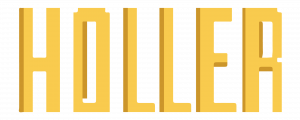-
After reviewing the materials, I now understand that inquiry-based learning is much more broad than I had originally thought. As I said in my earlier post, there are many different ways of obtaining information based on the individual needs of the students. I really like how the video titled “What is Inquiry-Based Learning?” explained the structured, guided, and open levels of inquiry. This was my favorite of the videos because it shows how inquiry-based learning can be modified in different classrooms to meet the skill level of the students, as well as meeting the needs of the teacher depending on how comfortable they are with the IBL method. I really liked the quote from the video “Tell me and I forget. Show me and I may remember. Involve me and I will understand.” The last sentence of the quote summarizes IBL. As opposed to traditional teaching methods where the teacher plays the role of the provider of the information and the student mainly plays the role of the receiver of the information, IBL incorporates the constructivist theory, which allows students to construct their own knowledge through experiences. The teacher develops an open-ended question or devises a topic based on the curriculum and the students devise their own questions. Teachers design exploration activities that trigger the student’s prior knowledge and engage the students. The students then gather resources, conduct research, and process/analyze the information. It is very important that the students take the time to reflect on their learning. I said earlier that I believed there were no right or wrong ways of thinking in IBL. When the students have the opportunity to self-reflect, they can learn from their mistakes, which also reinforces the knowledge they have gained.
It can be easy to fall into the trap of traditional teaching methods that we may have been used to from our time in the classroom as a student. In the traditional method, the instruction is mainly teacher-led, while the students are simply memorizing the information and their success is measured by an assessment that requires one right answer. As stated in the article “Concept to Classroom”, our current education system has worked in a way that discourages the natural process of inquiry. The article also says that today’s teaching methods simply prepare students for in-school success and the next grade level. IBL prepares students for life after high school by giving the students the opportunity to develop a set of problem-solving skills that will be very beneficial throughout the student’s life.
There are many resources available today that students and scientists did not have in the past. For example, the video about the tree kangaroo talks about the “critter cam” and how it has enabled scientists and students to gain a first-hand look at the everyday habits of the tree kangaroo in its natural environment. Also, the article titled “A Comparative Model of Field Investigations” talks about the ways that second and fourth grade students in a Washington elementary school work with local farmers to study the short-horned lizard. The students were planning on equipping some of the lizards with the radio collars that will enable them to collect data comparing the amount of movement the lizards undertake during each of the four seasons. Also, students at a Washington high school are working with the Washington Department of Fish and Wildlife to participate in the capturing of cougars, marking them with ear tags and collecting physical data from the cougars. Put yourself in the shoes of one of these high school students. Hey, do you remember that time we read about Cougars online? Probably not. Hey, do you remember the time we helped capture the Cougars and marked them with the ear tags? Absolutely! These types of memorable experiences will not only get the students excited to come to school and learn, but will also help them to develop a deeper understanding of the topic being studied. Like the article “Urban Environmental Education” states, learners should be engaged in the “making-of-science” and not simply memorizing a set of readymade knowledge.
Media
Photos
Videos
Audios
Files
Sorry, no items found.
Groups
Expeditionary Learning Fellows
Public Group
